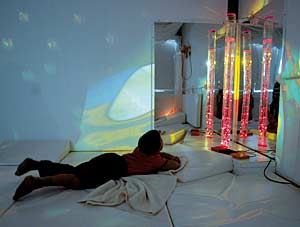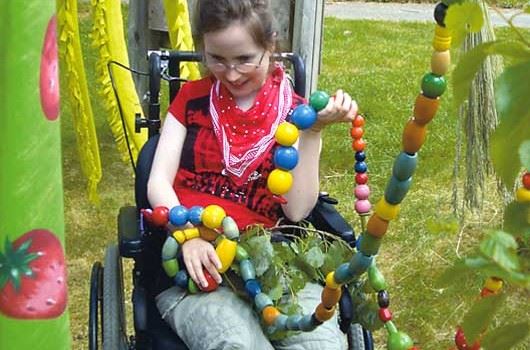Some 30 000 people in Norway suffer from rare hereditary or congenital disorders. They can be further divided into several groups, in which fewer than 500 share the same diagnosis.
Senior research scientist Lisbet Grut of SINTEF Health Research has led an in-depth study of such people. In a project carried out on behalf of the Directorate of Health, Grut interviewed 94 people from eight diagnostic groups and from the national centres for rare disorders that they attended.
A feeling of falling outside the system

DISORDERS: But treatments and adaption help.
Click to open
“People who have been diagnosed with rare disorders often encounter mistrust and a lack of sympathy in their meetings with the support system. Since they themselves know a good deal about the treatment, measures to be taken, risks and consequences of their diagnoses, they expect to be listened to and respected. But when they meet health service personnel, they find it difficult to get through to them,” she says.
All of the subjects in the study had experienced that health service personnel outside the national centres did not know about their rare disorder diagnoses. Many of them did not place high priority on acquiring such knowledge either, but made their decisions on the basis of what they assumed to be correct. When local follow-up took place, it was usually dependent on individual health personnel becoming interested in a particular case.
“Patients who have been diagnosed as having a rare disorder share a perception of having fallen out with the conceptual universes of the experts,” says Grut.
Diagnosis takes time
What these rare disorders have in common is that they are incurable. Nevertheless, many people can benefit from ameliorative treatments and various types of adaptation.
The group studied by Grut includes people suffering from cystic fibrosis (a multi-organ illness that attacks the respiratory and digestive systems), Usher Syndrome (double loss of hearing and vision) and bladder exstrophy (malformation of the bladder, urinary tract or sexual organs).
Several of the participants in the study say that it took a long time for a diagnosis to be made. In many cases, not even their closest relatives understand what is wrong with them.
Speciality centres
Because personnel in the general health service system seldom or never come into contact with rare disorders, a network of national centres has been set up for each disorder. These centres are intended to offer support to the people who have been diagnosed, their families, and professionals at all levels. However, about half of all people who have been diagnosed as having a rare disorder still lack such a national centre that they can attend.
Humble behaviour
Almost all the interviewees had dealings with NAV (the Labour and Welfare Administration), and many of them felt that their cases were dealt with in a rigid manner and that their actual needs were not taken sufficiently into account.
Many of the respondents found that in order to obtain help they had to emphasize the most negative aspects of their condition. Many of them said that they realize that they need to behave in a “polite, humble and obsequious” fashion, and they try to develop strategies for communicating with their case officer.
By Åse Dragland

